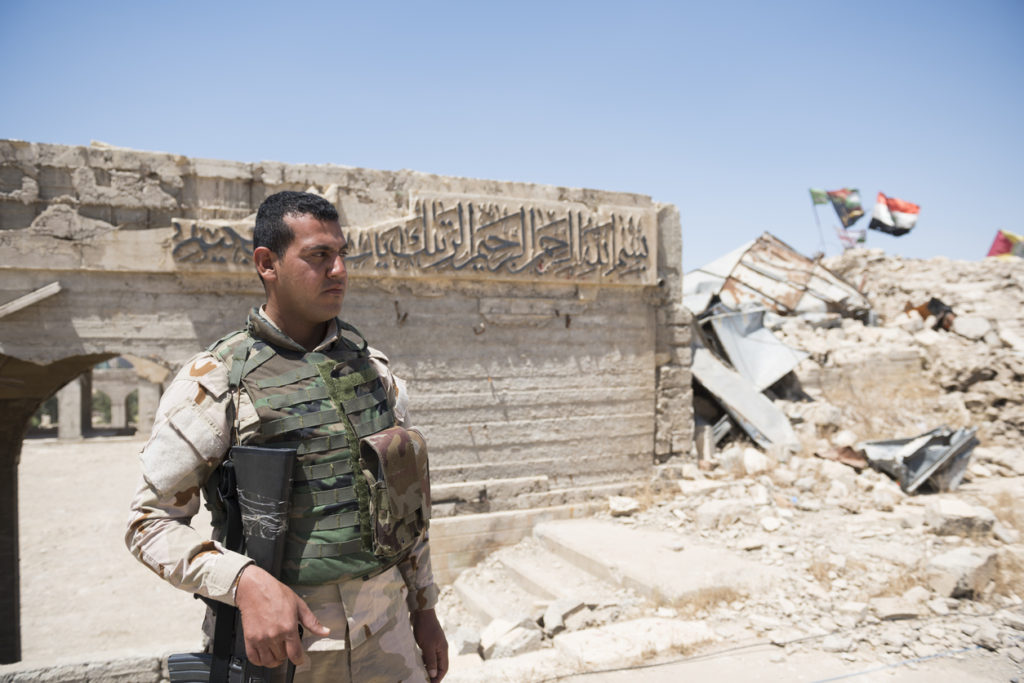On March 8th, Prime Minister Haider al-Abadi issued a decree that formally incorporates the Popular Mobilisation Forces, the paramilitary formations that sprung up to combat ISIS in the aftermath of the capture of Mosul, into the country’s security forces.
The PMFs will come under the command of the Ministry of Defence, drawing the same pay as regular soldiers and having access to the same institutions and training. They will also be subject to the same laws and regulations as Iraqi soldiers as well, finalizing a process of integration that began in 2016, when a heavily contested law was passed, making the PMFs report directly to the Prime Minister.
This move has been expected for some time, but it is likely that Prime Minister al-Abadi has held off on the decision before now, due to concerns that Saudi Arabia and the United States share about the PMFs and their links to the Iranian Revolutionary Guard. Nevertheless, the PMFs are broadly popular in Iraq, and the process of drawing them into state-run organizations will further bolster both their legitimacy and the ability of the state to further regulate their activities. Given how the PMFs have also acted as an umbrella group for a broader range of militia and paramilitary organisations, including Sunni and Christian formations, this also allows for their further incorporation into the state.
Stable security situation continues
Overall, security in Iraq continues along the trajectory set in the final months of 2017, though there has been a very slight increase in incidents in the past few weeks. Baghdad continues to be at higher risk of attacks than other parts of Iraq, suffering grenade attacks, shootings and IED attacks on public places, especially markets and shops, areas where ISIS can maximise civilian casualties.
Other than Baghdad, other key areas of concern are Kirkuk, Ninewa and Diyala governorates. In Diyala, an ISF convoy was ambushed, and multiple clashes with insurgents have occurred in the Hamrin Mountains. Kirkuk governorate has seen sustained attacks from insurgents over the past few months, including a large attack on a village south of Hawija, which saw several police officers killed. An oil pipeline in the region has also been targeted. South of Mosul, ISIS targeted a local sheikh who had led a militia against the group, killing him and at least nine others.
Slow burning insurgency?
One of the main fears regarding ISIS has been that the group will lay low in the more isolated and rural areas of Iraq, rebuild its strength and stage a comeback, as it has done before.
Some of the recent attacks suggest that ISIS are currently working to degrade Iraqi security on a local level, targeting security checkpoints, outposts and convoys in particular in the above named regions as a precursor to establishing a zone of weak government control in which they can more freely operate. A greater focus is needed on ISIS cells operating in these central/northern regions, and their attempted resurgence would be best combated via the rebuilding of the local Iraqi police forces, who along with support from the PMFs and ISF could undertake internal counterinsurgency operations to establish greater government presence in this zone.
Marc Simms is an occasional blogger for Proelium Law LLP. Marc holds a MLitt in Terrorism Studies and a Masters in International Relations, both from St Andrews. His particular interests are in emerging international security issues, unconventional warfare and terrorism.
Need advice?
If you’d like further information, or to discuss working with us, please get in touch







